Black History Month: The Friend You Need
In just the past few weeks, I’ve seen two friends post on social media about their spirit animals. Neither of them is Native American. Recently,...
AP & Honors Mathematics
Explore Wiley titles to support both AP and Honors mathematics instruction.
Literacy Skills & Intensive Reading
Connections: Reading – Grades 6–12
Empower student success with a proven intensive reading program that develops strong reading skills in striving readers.
Drama, Speech & Debate
Basic Drama Projects 10th Edition
Build students’ confidence and competence with comprehensive, project-based theatre instruction.
Literature
Connections: Literature
Support learners as they study dynamic, relevant texts and bring the richness of diverse voices to students through literature.
Literature & Thought
Develop critical thinking, reading, and writing across literacy themes, genres, historical eras, and current events.
Language Arts
Vocabu-Lit® – Grades 6–12
Help students build word power using high-quality contemporary and classic literature, nonfiction, essays, and more.
Connections: Writing & Language
Help students develop grammar, usage, mechanics, vocabulary, spelling, and writing and editing skills.
Reading/English Language Arts
Measuring Up to the English Language Arts Standards
Incorporate standards-driven teaching strategies to complement your ELA curriculum.
English Language Learners
Measuring Up for English Language Learners
Incorporate research-based best practices for ELLs with an approach that includes a focus on language acquisition strategies.
Mathematics
Measuring Up to the Mathematics Standards
Incorporate standards-driven teaching strategies to complement your mathematics curriculum.
Foundations
Measuring Up Foundations
Help students master foundational math skills that are critical for students to find academic success.
Science
Measuring Up to the Next Generation Science Standards
Give students comprehensive NGSS coverage while targeting instruction and providing rigorous standards practice.
Assessment
Measuring Up Live
Deliver innovative assessment and practice technology designed to offer data-driven instructional support.
For a better website experience, please confirm you are in:
5 min read
-1.png) Michael M. Guevara
Jan 31, 2022 12:28:39 PM
Michael M. Guevara
Jan 31, 2022 12:28:39 PM
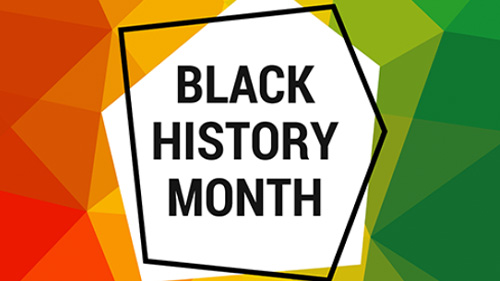
On December 20, four days after his semester finished, my youngest son flew home for Christmas break. On December 29, he flew back—19 days before his new semester started.
The youngest of the brood seems all but flown from the nest. His wings all but fully unfurled, he no longer needs his dad, except to pay for those plane tickets.
But just when I thought I had become obsolete, I got a phone call on January 2: “Dad, the windows are frozen shut. What do I do?” Though it’s his third year in college, it’s his first year to have a car there. In San Antonio, we rarely deal with weather that dips below freezing. It was 5° in Lawrence, Kansas, when he called me.
After some initial be-carefuls and working through my limited memory of operating a vehicle in the wintery climes of Indiana back during my graduate school days, I culled together some information from parents on the University of Kansas Facebook page and composed an email, a letter, if you will, of how to survive and drive as a Texan in Kansas.
I was telling him to be careful, trying to communicate the dangers that lie ahead, trying to communicate that he must be prepared for what may come.
Though on a much more serious level, my email reminded me of the letter Ta-Nehisi Coates wrote to his son and published as the book Between the World and Me. The book is a profound and brutal labor of love from a father to a son about how the world will treat his Black body.
I write to you in your fifteenth year. I am writing you because this year was the year you saw Eric Garner choked to death for selling cigarettes; because you know now that Renisha McBride was shot for seeking help, that John Crawford was shot down for browsing in a department store. And you have seen men in uniform drive by and murder Tamir Rice, a twelve-year-old child whom they were oath-bound to protect. (9)
It’s not an easy book to read.
If you’re Black, you will have to contend with the realities you know all too well.
If you’re white, you will have to contend with the discomfort the book creates within you.
If you’re white, you have the easy part.
Remember the blunt part? Coates holds nothing back writing to his son.
As for now, it must be said that the process of washing the disparate tribes white, the elevation of the belief in being white, was not achieved through wine-tasting and ice cream socials, but rather through the pillaging of life, liberty, labor, and land; through the flaying of backs; the chaining of limbs, the strangling of dissidents; the destruction of families; the rape of mothers; the sale of children; and various other acts meant, first and foremost, to deny you and me the right to secure and govern our own bodies. (8)
And long before the world was running crying the sky is falling over CRT, Coates was calling out the realities of systemic racism. Coates, from his own experience, writes:
To be black in the Baltimore of my youth was to be naked before the elements of the world, before all the guns, fists, knives, crack, rape, and disease. The nakedness is not an error, nor pathology. The nakedness is the correct and intended result of policy, the predictable upshot of people forced for centuries to live under fear. (17)
He goes on, in this letter to his son, to add:
The law did not protect us. And now in your time, the law has become an excuse for stopping and frisking you, which is to say, for furthering the assault on your body. (17)
As schools and teachers across the country commemorate Black History Month in the looming shadow of CRT bans and assaults on books in classrooms and libraries, the words of Coates feel even more prescient and necessary, and this message to his son, a poignant reminder of how far we still need to go.
Here is what I would like you to know: In America, it is traditional to destroy the black body—it is heritage. (103)
This is a heritage we must change. And this is a book we must read.
Dear Letter Writing, How We’ve Missed You
Before text messages, social media, and even the old-school email, people communicated via letters—correspondence handwritten, dropped into an envelope, and sent by postal carrier to someone somewhere else.
Using Ta-Nehisi Coates and technology, students can experience the lost art of letter writing. Using the site Future Me, students can send a letter to themselves in the future. With an email address, students have the option to send themselves a letter one year, three years, five years, or any date in the future, and the site will email them the letter on the date they choose.
Just as Ta-Nehisi Coates chose an important message to send his son, students can brainstorm what they might want to tell themselves.
Give students index cards or have them turn to a page in their writers’ notebooks and respond to each of the following questions. Set a timer (30 to 60 seconds).
After students have some writing to work with, have them follow the pattern Ta-Nehisi Coates uses in Between the World and Me.
In their writers’ notebooks or on a separate sheet of paper, have students write the following line from page nine of the book: “I write to you in your fifteenth year. I am writing you because…”
After writing the line, have students write: I write to you __________(have them choose a time). I am writing to you because _________ (students will now pull from their prewriting to complete their letter).
Allow students time to write.
Writing Process: Depending on time, you may choose to have students revise, peer edit, and confer on their writing. Some of the letters may be personal, so you will need to use discretion in asking students to share their writing.
Writing Enhancements: Once students are ready to publish their letters to FutureMe, you may choose to have postage stamps and different types of stationery available for students to handwrite their letters and mail them to themselves. You may need to provide a mini lesson on the format of a letter and how to address an envelope.
Have students publish their letters to Future Me.
You can lead by example and complete the letter activity yourself.
Interested in buying any of the books mentioned in this post? Visit our classroom libraries page.
Download the pdf to easily save or print!
Michael Méndez Guevara is a former high school journalism and English teacher who spent his time in the classroom helping students see themselves as writers and fall in love with reading through the world of young adult literature. As an educational sales consultant with Perfection Learning®, Michael works with teachers and schools on improving their literacy instruction and providing resources to help students achieve academic success. He has taught elementary school, middle school, and high school and has worked as a district level leader and served on the Texas state standards revision committee that developed the state’s current literacy standards. He is the father of three adult sons, the youngest a student at the University of Kansas—Rock Chalk! Michael is working on a professional development book for literacy educators and currently has agents reading the manuscript of his young adult novel, The Closest Thing to a Normal Life. When he's not reading, writing, or running, Michael is fully committed to watching as much Law & Order as possible.
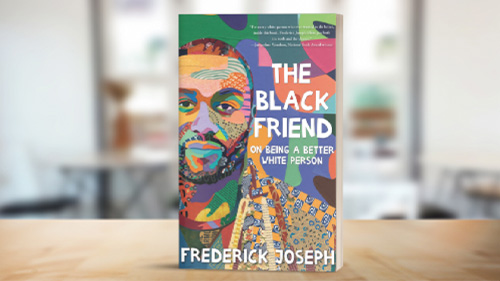
In just the past few weeks, I’ve seen two friends post on social media about their spirit animals. Neither of them is Native American. Recently,...
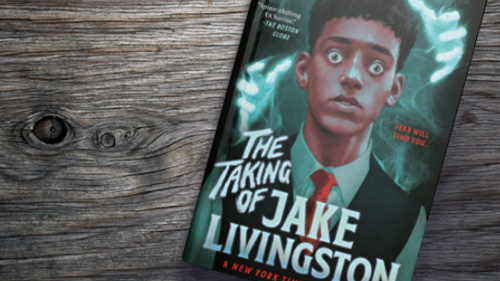
My mother tells this story of being so exhausted that she couldn’t get up to rock my older brother, her first child, back to sleep in the middle of...
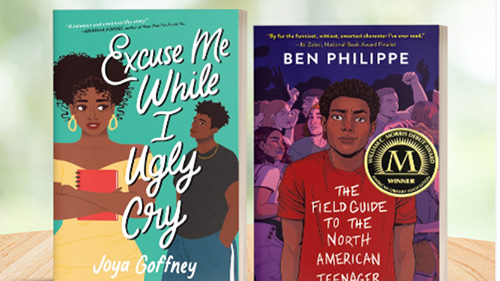
Okay—circle of trust here. After dropping my youngest child off at college all the way from San Antonio, Texas, to Lawrence, Kansas, at The...
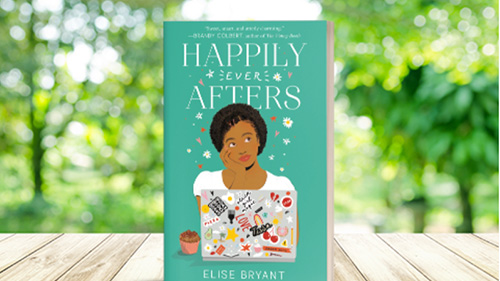
Back when I taught at Southwest High School in San Antonio, Sharri Peterson, who dubbed herself my work wife, was my school spirit partner. Whenever...
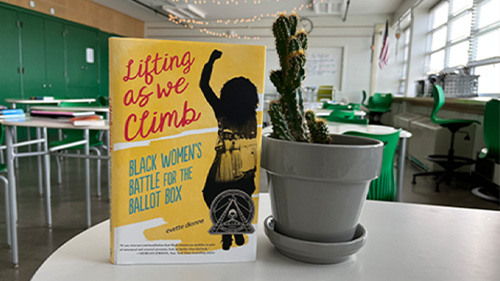
My favorite thing about Lifting As We Climb: Black Women’s Battle for the Ballot Boxby Evette Dionne is that it’s accurate, and the author highlights...

In honor of Black History Month, I have created a lesson that can be used for students to learn (or review what they have learned) about African...
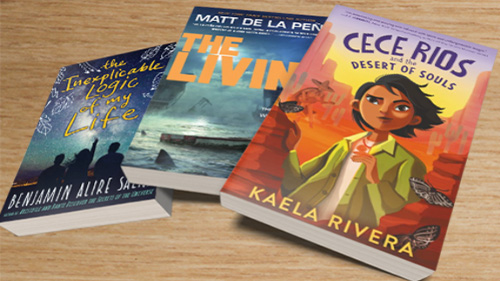
In my first period class of sophomores at a high school on the Southwest side of San Antonio, I had one White student, one Muslim student, and the...
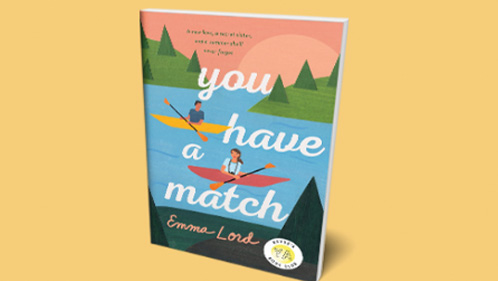
Every time I open up Instagram, Facebook, or Twitter, I’m given the option to post to stories or urged to open the stories of others. Pictures that...

Growing up with three brothers and not Catholic, quinceañeras weren’t really a thing we did. But when Yvette Guerrero turned 15 and Betty Espinosa...
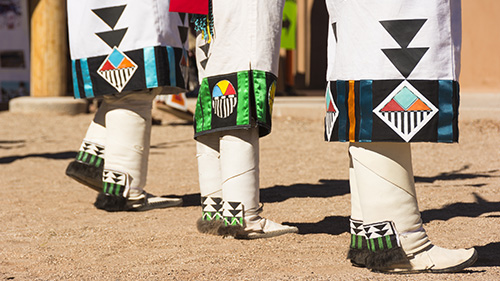
In recent months I learned, along with others around the world, of the horrific stories of the mass unmarked grave sites of Indigenous, or...

Mental health is just as important as our physical health, and many educators understand this. According to the National Institute of Mental Health,...
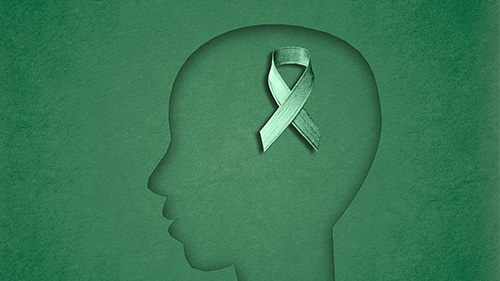
May is Mental Health Awareness Month. It’s also the last full month of school for traditionally-scheduled districts. I think mental health is the...
